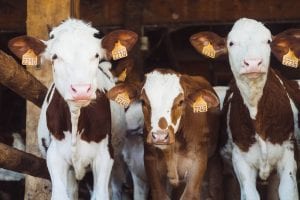Earlier this week I attended the WWF Fuller Whole Planet, Full Plate Symposium. The one-day event brought together leaders in science to discuss our growing population and the complex issue of feeding it while minimizing strain on our planet. Diverse speakers addressed different challenges from their professional perspective and among the varied perspectives was a clear sense of unity. There was a keen awareness that sustainable solutions to the problems we face can’t be solved by any one group but rather will take partnerships across various sectors. The result of this awareness was a fascinating exploration of several underlying issues that lead to malnutrition and poor food access.
During the morning session, Tjada D’Oyen McKenna, Deputy Coordinator for Development at Feed the Future spoke about the connection between agriculture and strengthening women’s economic empowerment to reduce poverty. Feed the Future focuses on women because they understand that women provide the bulk of agricultural labor and are also the ones that figure out how to feed the family and provide nutrition. Supporting women is an important role in advancing agricultural development and food security.
Amongst my favorite talks was Dr. Jennifer Clapp’s segment on promoting food security and why governance matters. In her talk Dr. Clapp addressed how poverty is often the underlying issue to food security. Her talk explored multiple benefits to small scale farming including: how this approach to farming can give more people access to food, the enormous productivity potential of small scale production, and the tendency of small scale farmers to produce in more ecologically diverse and sound ways. Small-scale producers face significant challenges, such as unequal rights to agricultural land, that make it difficult for small-scale farms to reach their full potential.
Another eye-opening talk was Tristram Stuart’s session “Solving the Global Food Waste Scandal” which shed light on the struggles farmers face as suppliers to major grocery stores. Whether it’s a canceled order because the grocer was able to secure a cheaper price elsewhere or because a particular product isn’t selling well – farmers almost always end up swallowing the cost which can mean not feeding their own families and is certainly an unnecessary food waste.
Despite population growth, today we are producing 17% more food per person than 30 years ago; yet, over 800 million people go hungry while we feed sugar and maize to cars. The symposium made it apparent that we, as solution makers, must undergo a paradigm shift in order to truly address the food issues at hand. First, we must reclaim food and work toward policies that promote farmers and just food governance. Second, we must acknowledge the underlying issues that contribute to malnutrition and work towards eliminating them. Finally, we must shift our efforts from producing more food to reducing food waste and improving food access.
In future blog posts I’ll dive deeper into some of the topics discussed by speakers at the 2014 WWF Whole Planet, Full Plate Symposium.




